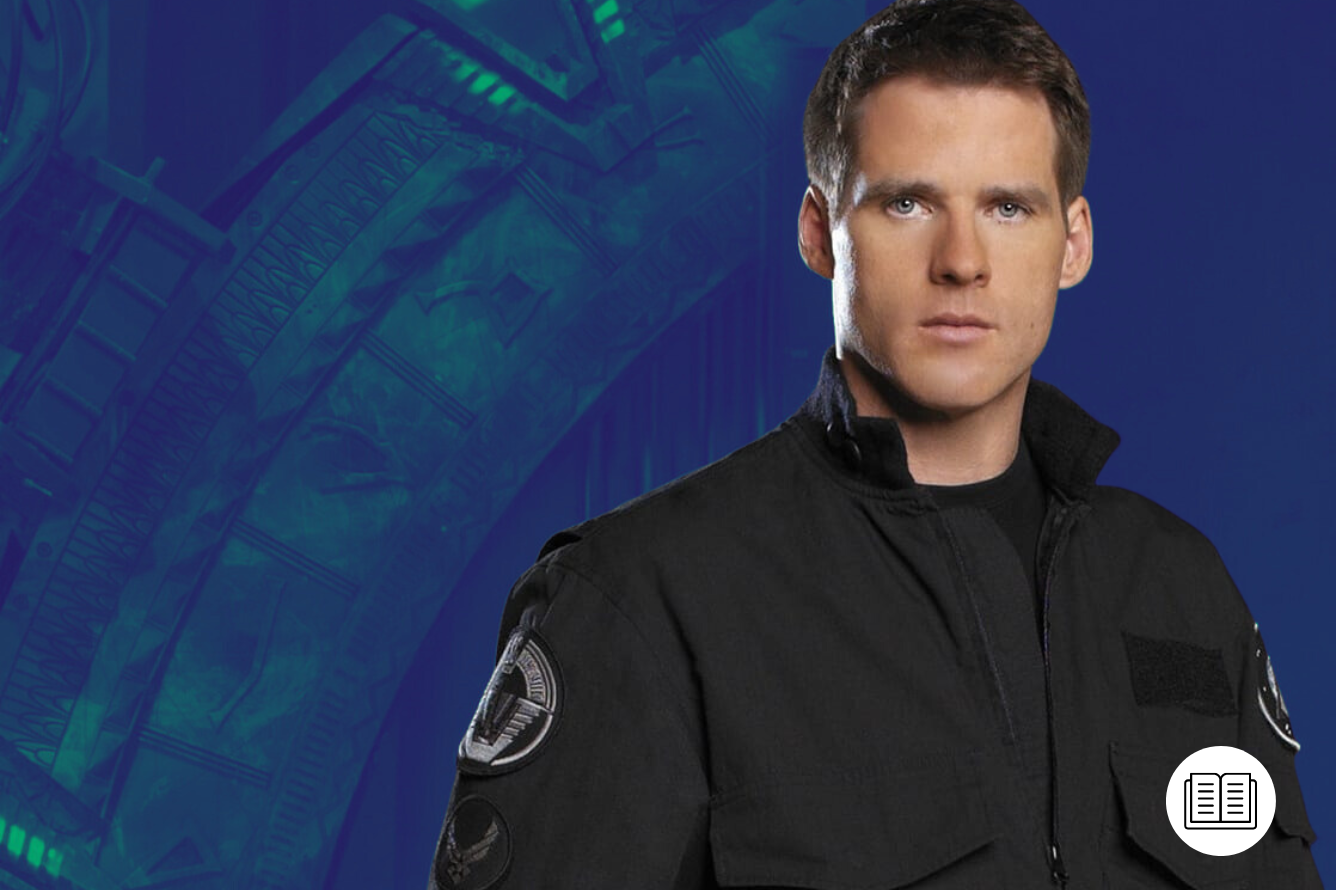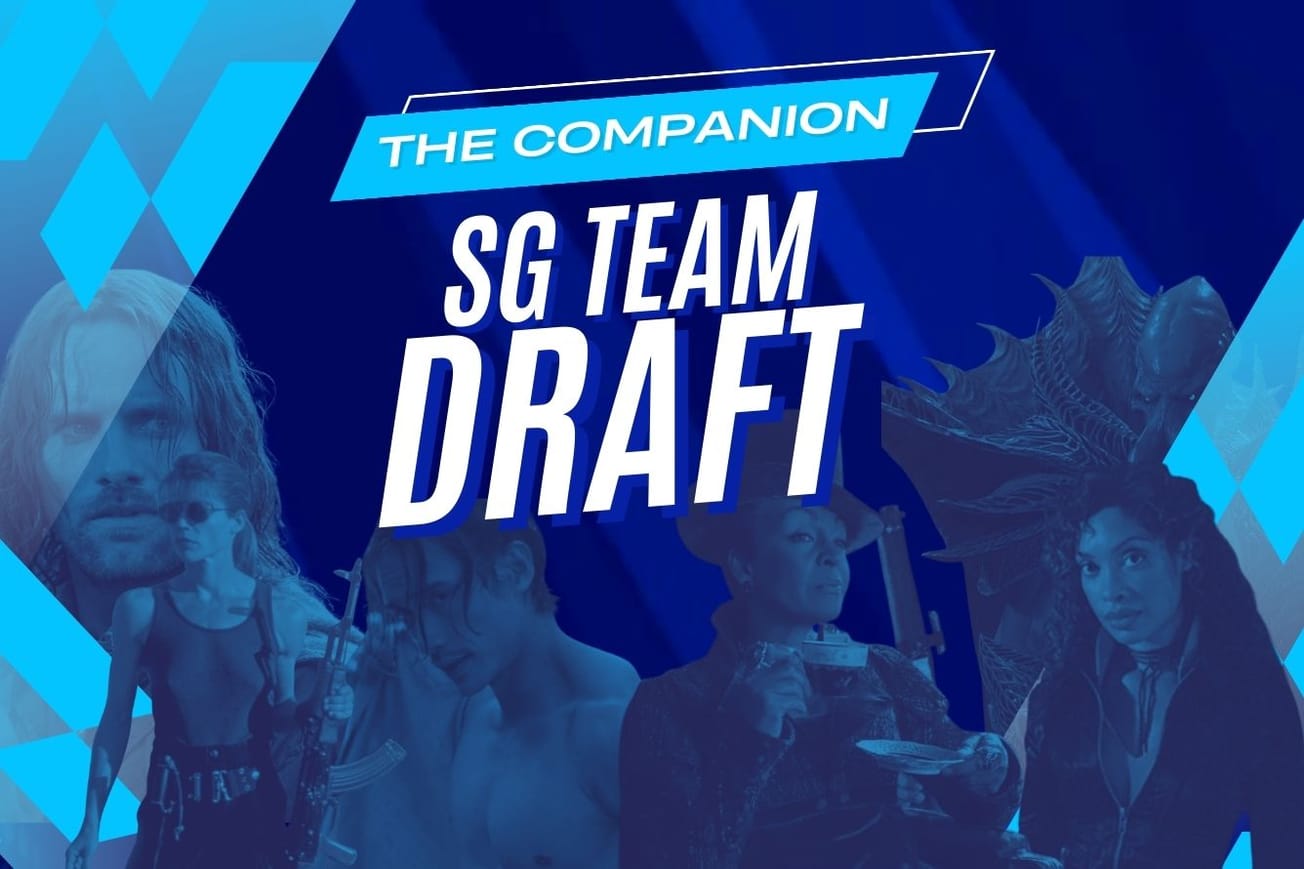“After eight seasons, get ready for something NEW.”
I remember seeing that tagline on the then-SciFi Channel nearly sixteen years ago. Stargate SG-1, my favorite TV show, was entering its ninth season. And although I was upset that Richard Dean Anderson was leaving, I was still excited to see what this new season would bring.
At first, 11-year-old me had a hard time with the “new” Stargate SG-1. It had new characters, more innuendo, and a slightly darker tone than what had come before. But in the midst of all this change, there was one new thing I loved: the new leader of the team, Lt. Col. Cameron Mitchell (Ben Browder).
He was energetic, humorous, sarcastic, and charming. He was pretty handy with a broadsword. And while he was no Jack O’Neill, he carried his own as the new lead of the series. Even though I was grieving the absence of one of my favorite heroes, this new guy put me, as a young fan, at ease.
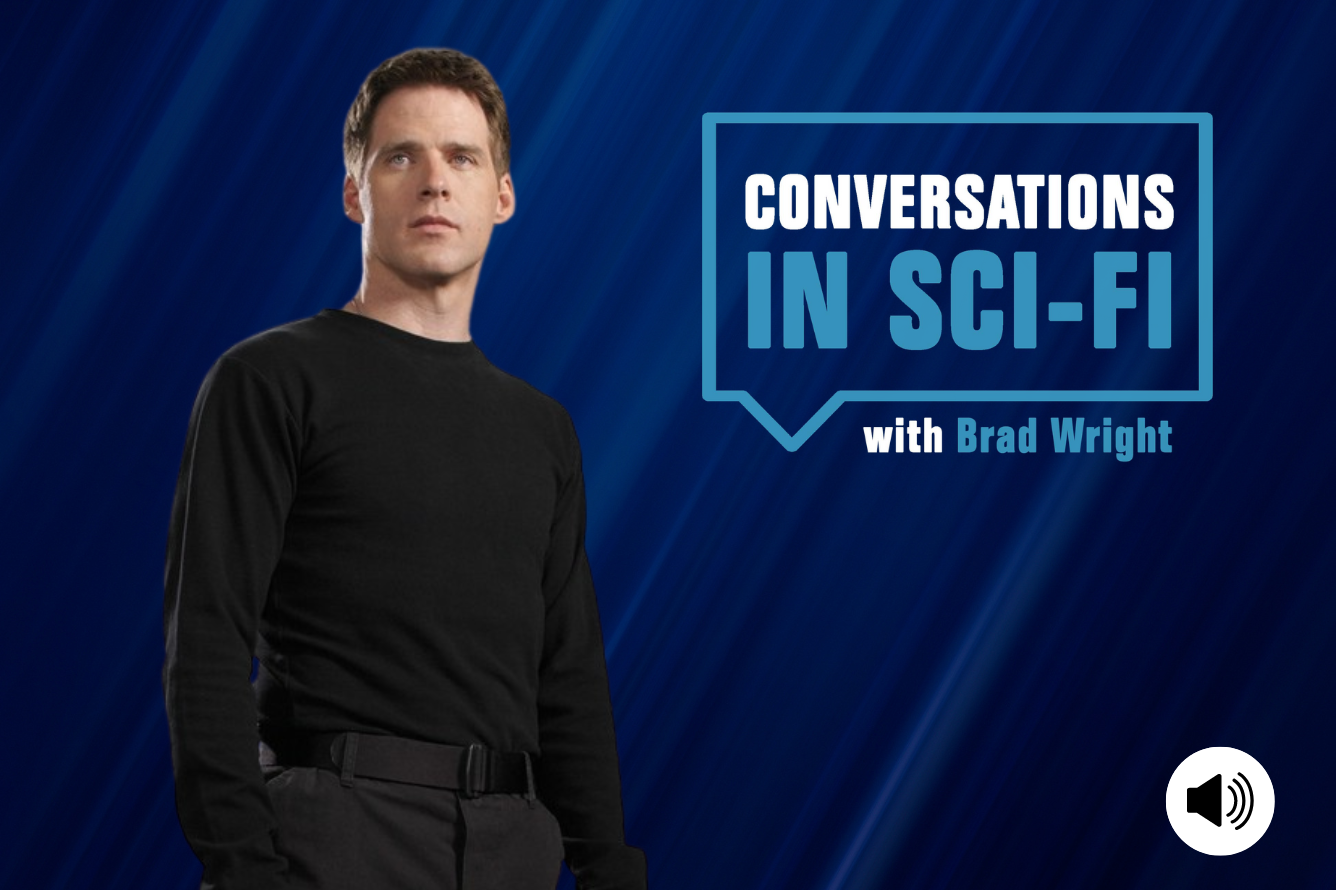
As I’ve re-watched the series multiple times, I enjoy the character more and more. And the reason I like him so much is because he isn’t O’Neill. Whether this was something that was heavily baked into the writing, an acting decision on the part of Ben Browder, or (most likely) a combination of the two, the character was truly his own. I think that’s why he was able to pull off the impossible task of stepping onto a beloved show, and into a beloved character’s shoes (err…boots?).
In fact, because Mitchell was a very different character, not only was he a successful replacement for O’Neill; he was able to move the series forward in ways that O’Neill could not.
Mitchell Brought Our SG-1 Back Together
I’ll start this article about Stargate by referencing another sci-fi mainstay: Star Trek.
I love Star Trek, particularly The Original Series films. But as iconic as those films are, they suffer from a major in-universe plot problem, one that bugged me even when I was a kid watching them for the first time.
Star Trek films work when all our favorite characters are on the bridge of Enterprise. It’s what makes Star Trek, well, Star Trek. But over time, that became more and more unfeasible narratively. As the crew progressed in rank, it became less likely they would continue in their previous posts. And it didn’t make sense to have a single starship manned entirely by captains and commanders. So with each film, we had to come up with a new reason why everyone ended back on Enterprise, which resulted in some, well, interesting narrative decisions. (Anyone remember “What does God want with a starship?”).
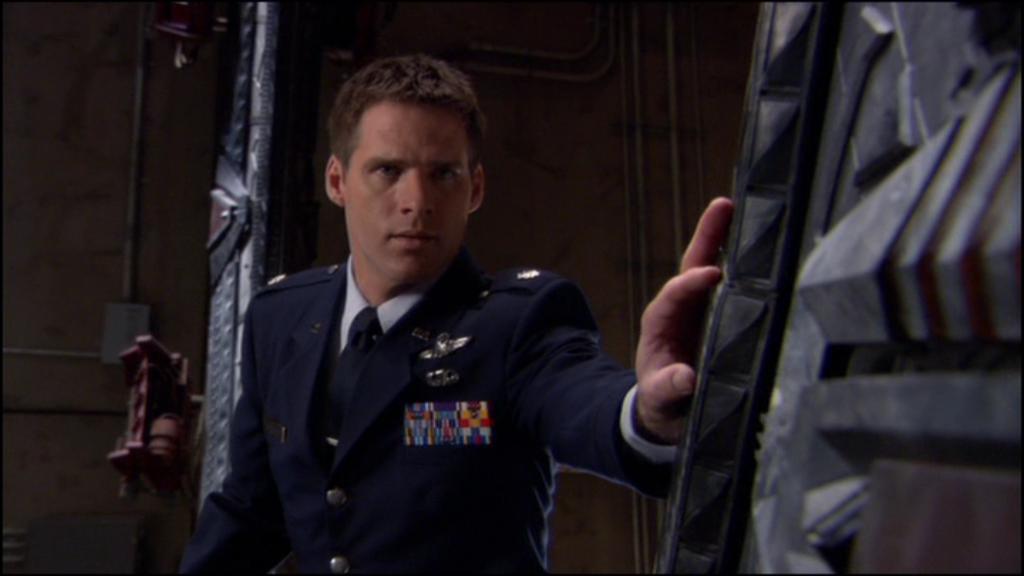
Likewise, by the end of Season 8, Stargate SG-1 had run into a similar problem. Carter (Amanda Tapping) had been promoted multiple times and was a leader in her own right, Teal’c (Christopher Judge) had led the Jaffa to establish a brand new nation, and Daniel (Michael Shanks) was working somewhere that wasn’t Atlantis. Much like with the TOS cast, they had all excelled to the point that there was no narrative reason for them to stay in SG-1. So when we start Season 9, they aren’t. This immediately gives Mitchell a dramatic arc that not only solidly establishes his character, but sets the direction for rest of the show. Not only does he have to take command of SG-1, but also, in his words, “get the band back together.”
“Listen, General O’Neill gave me the choice of any posting I wanted. I chose SG-1. That meant Colonel Carter, Teal’c, and [Daniel]. Not two letters, a dash and number.”
Mitchell serves as the perfect catalyst to bring together two things: what makes sense in-universe with regard to these characters, and what we as the fans wanted to see week after week: SG-1 going out into the galaxy, causing trouble, finding new cool technologies, and saving the planet for the tenth time. Not only that but by giving Mitchell this exciting plot thread, it made Stargate SG-1 feel new again, even though most of the ensemble was still the same. It refreshed the show while maintaining what made the fans love it in the first place.
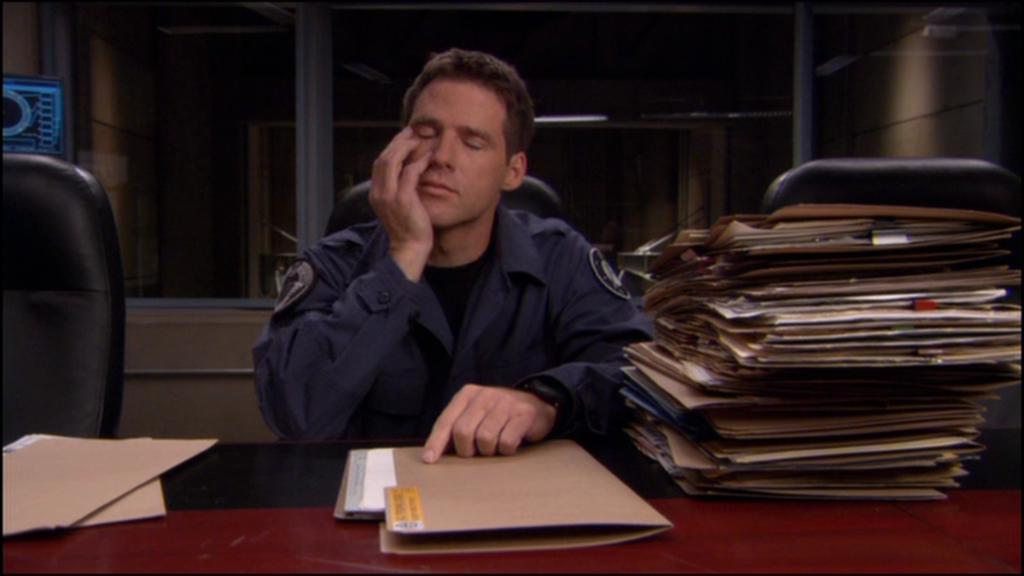
Mitchell’s Very Different Leadership Style
One of the things that I love about re-watching Stargate SG-1 over and over again is that new things stick out to me each time I watch it. I guess it makes sense: I’ve watched the show as a middle schooler, teenager, college student, young adult, and now a young dad. Things hit different at each stage of life.
And one of the things that stood out to me on my last re-watch was the shift in the team dynamic when Mitchell took command.
While O’Neill was respectful and trusted every member of his team, there was no doubt that he was in command. Carter was his subordinate, and Teal’c was a warrior who respected the chain of command (except when there was a “Jaffa revenge thing”). And for all their disagreements over the years, and there were many, Daniel rarely directly disobeyed one of O’Neill’s orders outright. He still afforded him the respect of a commanding officer, even though he was still a civilian.
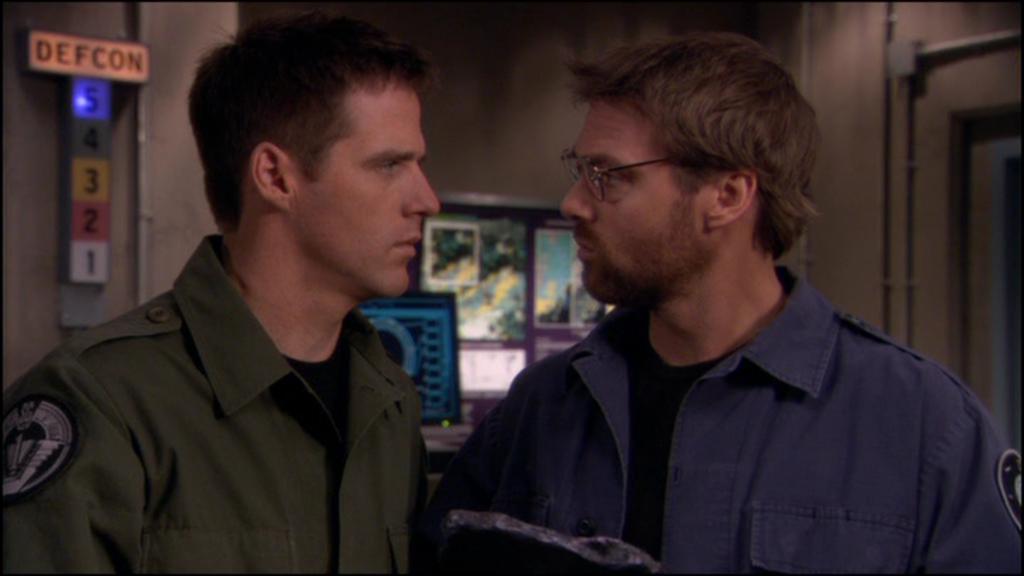
This dynamic quickly shifted under Mitchell. First off, the whole “getting the band back together” meant that he had to beg, borrow, and plead to get everyone back on the team (the looming threat of the Ori certainly helped in that regard). His relationship with the team started off more collaborative than O’Neill had been.
In fact, Mitchell himself sums this dynamic up perfectly:
“Sir, I know I can’t control [Vala], but that’s pretty much par for the course. Carter and I are the same rank, Teal’c’s an alien, Jackson’s a civilian. I learned a long time ago I don’t control anything.”
While Mitchell is certainly the team leader (although some fans hold that fact in dispute), he led as the “first among equals.” This resulted in a different dynamic among the team, but one that was exciting to watch for the two seasons and two films.
Both O’Neill and Mitchell had excellent leadership styles, and each of them was suited to the dynamics of their team. O’Neill commanded a team of young, semi-green individuals, while Mitchell led a group of experienced colleagues. Approaching his leadership from a new angle made for an interesting shakeup in the character dynamics.
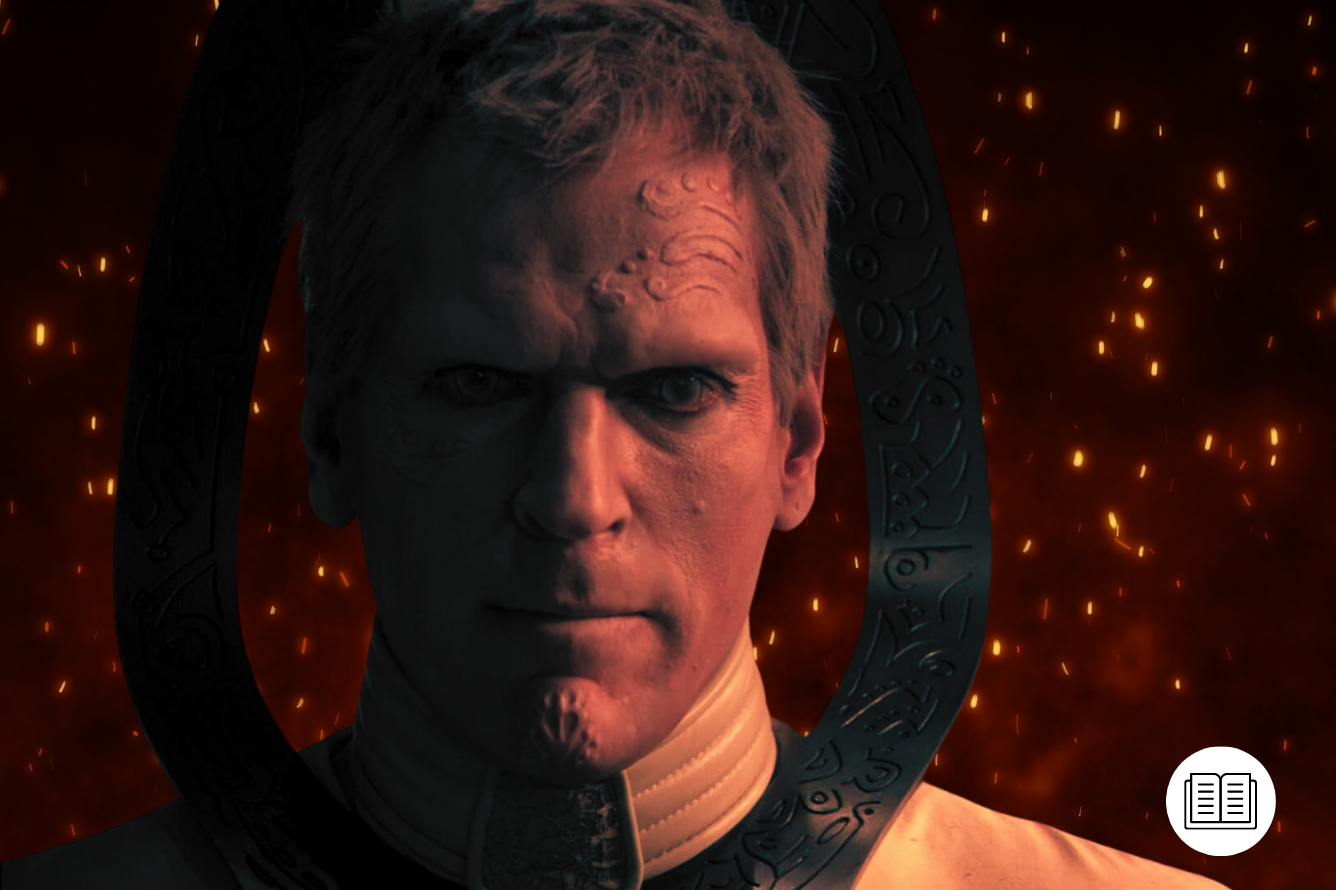
Mitchell is the Fan’s Eye View on SG-1
Everyone talks about how Richard Dean Anderson’s humor was the reason to watch Stargate SG-1 (at least, one of the reasons). And I believe the show certainly lost something when he left.
But Mitchell is also funny. Like, really funny. And I think the reason his humor works is that it comes from a totally different place than O’Neill. While O’Neill’s was cynical humor, Mitchell came from a place of youthful enthusiasm. It came from a guy who was a FAN of the Stargate Program and was jazzed anytime that he got to be a part of it.
From that moment in ‘Avalon: Part 1’ (S9, Ep1) where he yells out “SEE! That’s what I’m talkin’ about” to his chastising Teal’c because “bullets bounce!”, Mitchell offers a fresh, more positive, and energetic approach to the story, and to its sense of humor. And just like O’Neill’s humor was perfect for his era, Mitchell’s was perfect for his.
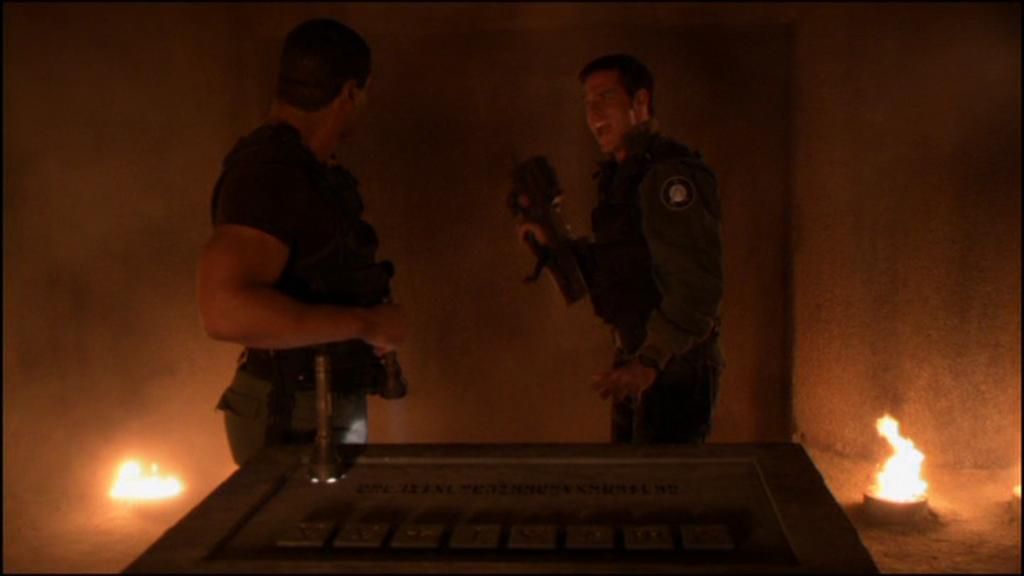
At the beginning of the show, the Stargate Program was a fledgling operation with only nine SG teams. Our heroes were just discovering how the Stargate worked, the dos and don’ts of gate travel, how to engage in off-world relations, and more. But as the show grew, the in-universe Stargate Program grew. If I can draw another Star Trek comparison, it’s the difference between the Kirk-era and the Picard-era. Kirk’s Enterprise was “cowboys in space.” Picard’s Enterprise lived in a much more established world that was less of a “final frontier.” It’s the same here. The O’Neill years were the “cowboys in space” era. SG-1 spent eight years exploring the galaxy, building relationships, establishing treaties, and, yes, beating bad guys. We literally got to see the Stargate Program built from the ground up.
But at the start of Season 9, everything is different. SGC is a well-established institution, complete with bureaucracy and multinational oversight. As someone who wasn’t there for the founding of this institution, Mitchell presents us with a fresh perspective: seeing this monumental institution with fresh eyes. Mitchell came in from the outside as a fan of the Stargate Program who gets the chance to work with his heroes. It was an exciting, new way into this story. And it worked like a charm.
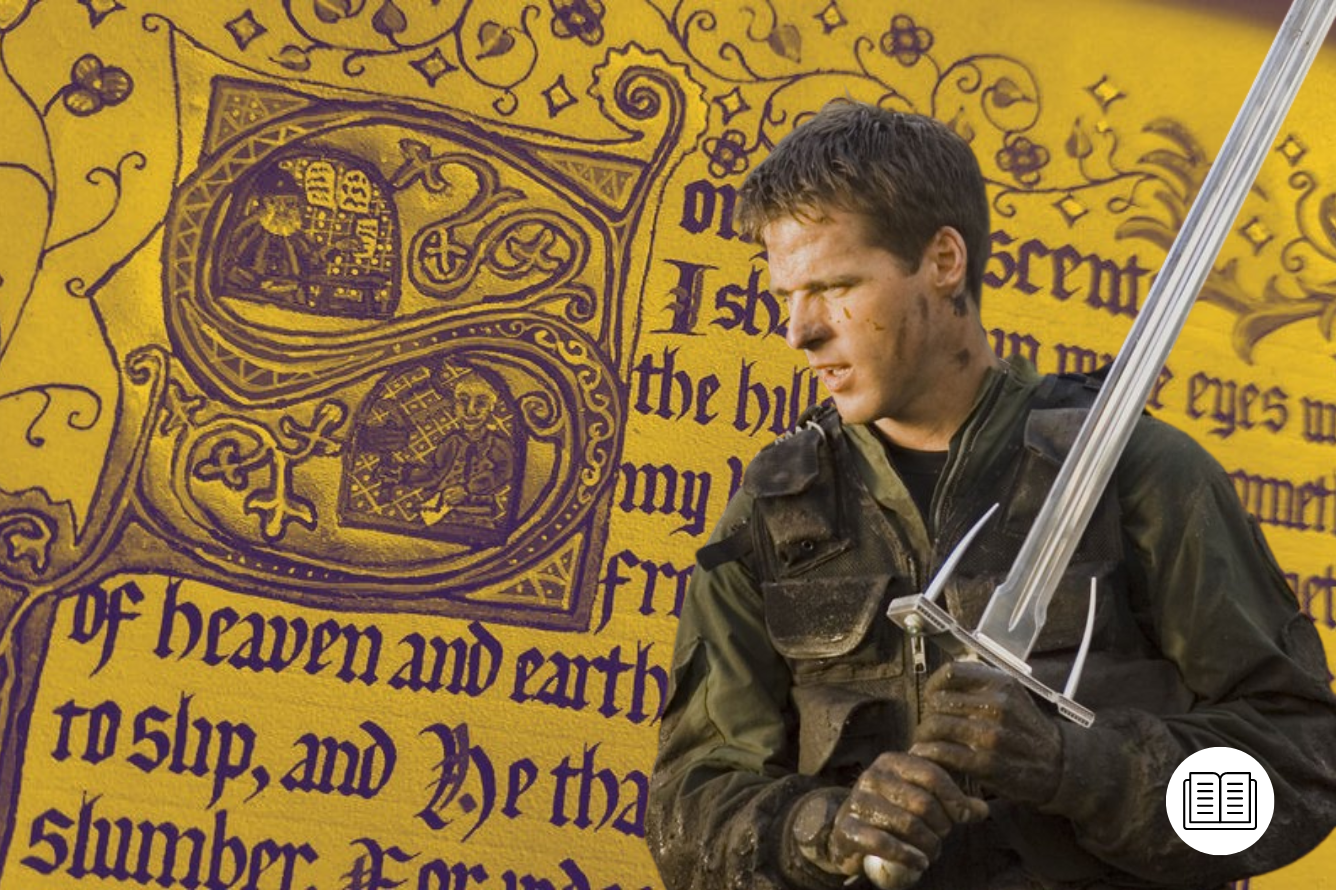
Cameron Mitchell Refreshed SG-1
Executive producer Joseph Mallozzi has a saying that perfectly encapsulates what makes a great sci-fi show: “Come for the hook, stay for the characters.”
Anyone who’s a fan of Stargate SG-1 knows that the reason we all love the show is because of the characters. Whether it’s O’Neill snapping back with a one-liner or Teal’c struggling to correctly utter an Earth colloquialism, these characters are what make us stay with the show. SG-1 (and all of the franchise really) is a character-driven show at its core. Sure, there are all the sci-fi elements that serve as plot devices and window dressing and offer new, exciting ways to explore these characters. But at the end of the day, it’s about the team. And the people on that team define what kinds of stories get told.
So it’s not surprising that when the cast changes, the stories change. That’s a great thing, otherwise, the show would get stale and would end up losing fans. In the case of Mitchell, some of the great stories of Seasons 9 and 10 have existed because of that character.
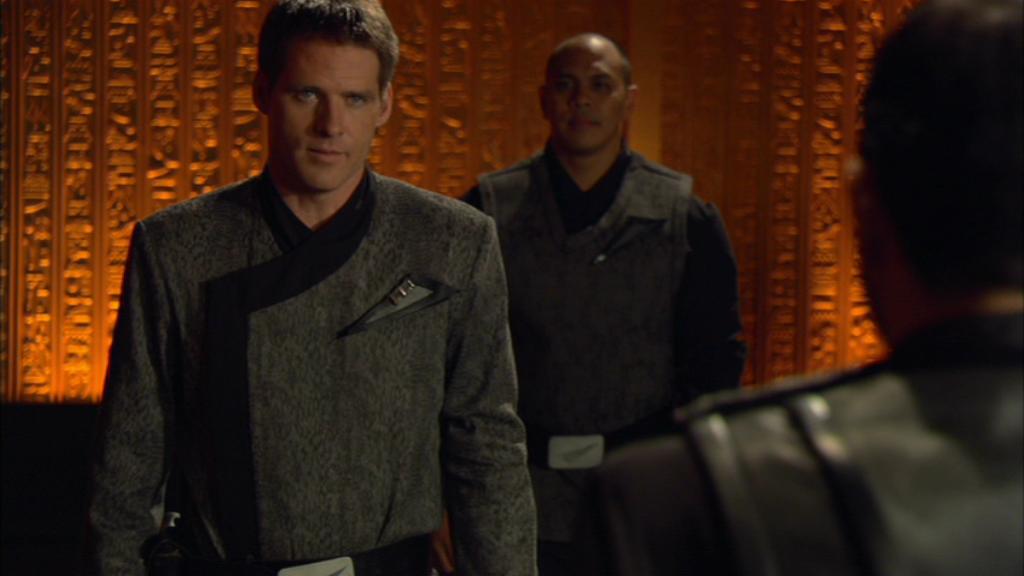
‘Bounty’ (S10, Ep15) put a sci-fi twist on a high school reunion story. ‘Collateral Damage’ (S9, Ep12) was a Mitchell story through and through, and ended up being one of the best episodes of that season. And then there’s ‘Company of Thieves’ (S10, Ep9). The idea of Mitchell infiltrating the Lucian Alliance was a fantastic story that never would have worked had O’Neill been the lead. Heck, just remember what happened in ‘Into the Fire’ (S3, Ep1) when O’Neill tried to pretend he was a Goa’uld. (Spoiler: It didn’t go well.)
Am I arguing that Mitchell’s stories were better than O’Neill’s stories? Absolutely not!
But they were excellent, and it would have been a shame had they not been told. After all, one of the areas where Stargate shines has always been the ability to tell a wide range of stories but still make sense within the show's context. Mitchell simply opened the door for more variety.
No More Explaining Away Jack O’Neill
I’ll close with something that has less to do with the character of Mitchell himself, and more to do with the realities of behind-the-scenes production. After leading the cast as a strong, full-time lead for five seasons, Richard Dean Anderson started to scale back his screen time in Season 6. Over the next three seasons, he continued scaling back; by Season 8 he was, as the show self-referentially noted in ‘200’ (S10, Ep6), “phoning it in.”
This led to many storytelling changes over the course of those seasons. For starters, the writers came up with a lot of creative ways to not have O’Neill present. He became a Tok’ra, was arrested for murder, and (my personal favorite) was turned into a teenager and played by a whole different actor, among others. Because of this change, the storytelling slowly drifted away from a strong, balanced ensemble to a lopsided ensemble with one character in and out, depending on the episode.
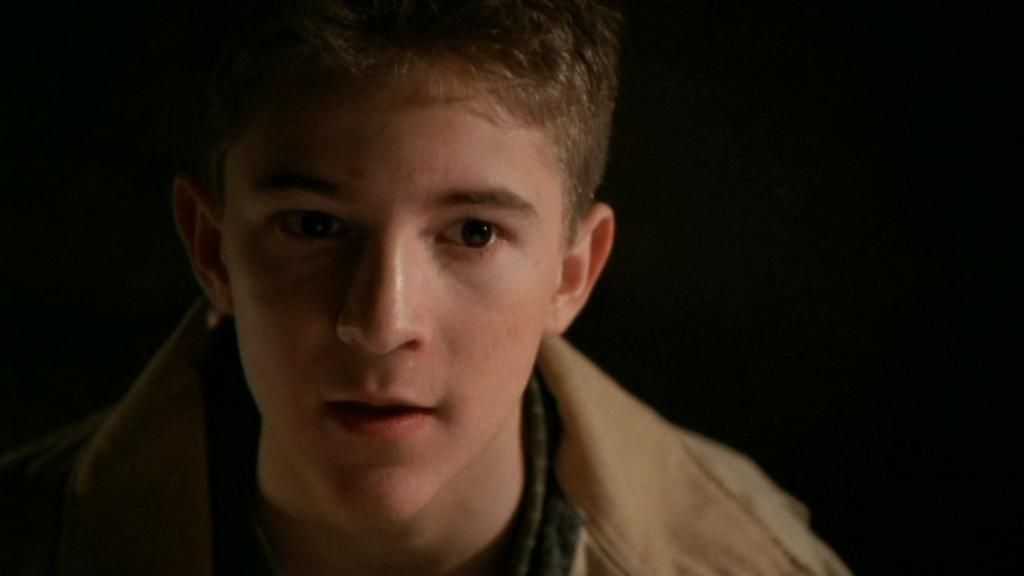
This is where Mitchell came out strong. Because he had the capacity to be a full-time lead, he automatically felt like a bigger presence on the show than O’Neill was at that point. This, in my opinion, led to a much more balanced ensemble and the opportunity for much stronger storytelling.
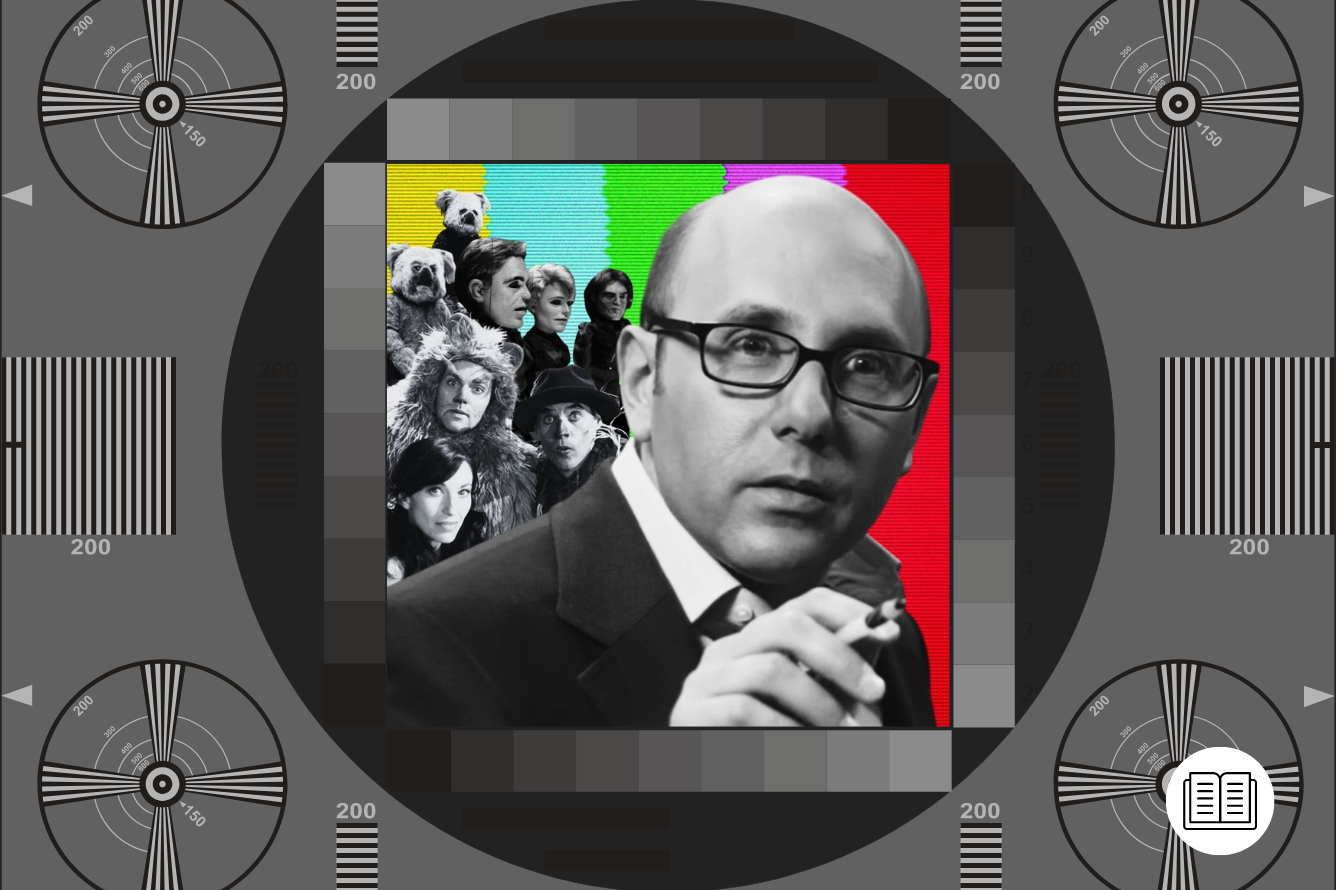
Cameron Mitchell in Conclusion
I still remember watching ‘Avalon’ for the first time and thinking to myself: Wow, this is a completely new show. I’m not sure if I like it.
But after a few episodes, I warmed not only to Mitchell but the new era of Stargate SG-1 that he brought with him. Seasons 9 and 10 featured some of the best writing, and unbelievable performances, and laid the foundation for two stellar films.
For the era of the show that he was in, Cam Mitchell was an excellent leading man. While I would have been interested to see a Carter-led SG-1, the decision to bring in a new lead worked. And it worked really well.
As a Stargate fan, I can say without reservation that I’m a Mitchell fan too. I hope that when we get a new Stargate series we’ll get the chance to catch up with him.
This article was first published on May 30th, 2021, on the original Companion website.
The cost of your membership has allowed us to mentor new writers and allowed us to reflect the diversity of voices within fandom. None of this is possible without you. Thank you. 🙂


